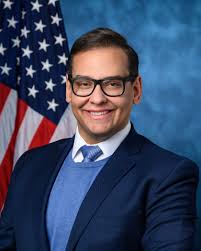The George Santos Controversies: A Political Overview

Introduction
George Santos, a Republican congressman representing New York’s 3rd district, has recently become a figure of significant controversy in American politics. His rise to office was marked by numerous fabrications regarding his background, which have sparked widespread discussion about integrity in political leadership. Understanding the implications of Santos’s actions and the reactions from both his constituents and political peers is crucial in the context of current political dynamics.
Background and Rise to Prominence
Santos was elected to Congress in 2022, riding a wave of Republican support in a district that had historically leaned Democratic. However, shortly after his election, reports surfaced regarding discrepancies in his bio, including exaggerated claims about his educational and professional background. These revelations prompted multiple investigations into his conduct and statements.
The Investigations
As of early 2023, Santos is facing multiple legal inquiries. Federal authorities are reviewing his campaign financing practices, particularly concerning large loans he reportedly made to his campaign. Additionally, Santos has been accused of misrepresenting his financial status, which raises questions about his eligibility to serve in Congress. The House Ethics Committee has also launched an investigation to determine whether Santos violated any regulations regarding his disclosures.
Political Reactions
The political fallout surrounding Santos has been pronounced. Some Republican leaders have called for him to resign, while others, notably his constituents, have expressed their support. In a divided political climate, reactions to his controversies mirror larger trends in party loyalty and ethical expectations from public officials. Polls indicate a split among voters in his district, with some eager to see him remain while others hope for accountability.
Conclusion
The future of George Santos remains uncertain as investigations proceed. His case highlights broader issues of accountability and ethics within U.S. politics, particularly as voters become increasingly aware of the discrepancy between candidates’ claims and their actions. As his situation develops, it is likely to influence the public’s trust in not only Santos but also the Republican Party and the political system as a whole. Voter sentiment in future elections may hinge on how this controversy unfolds, potentially reshaping the landscape for both current and aspiring politicians.









